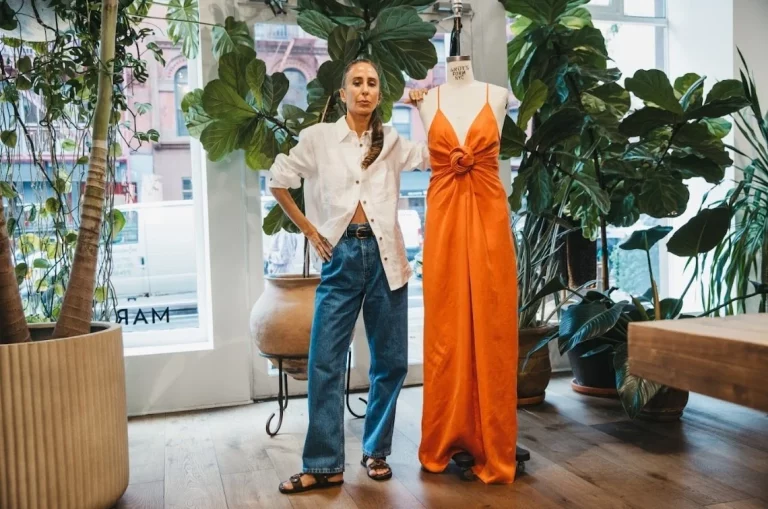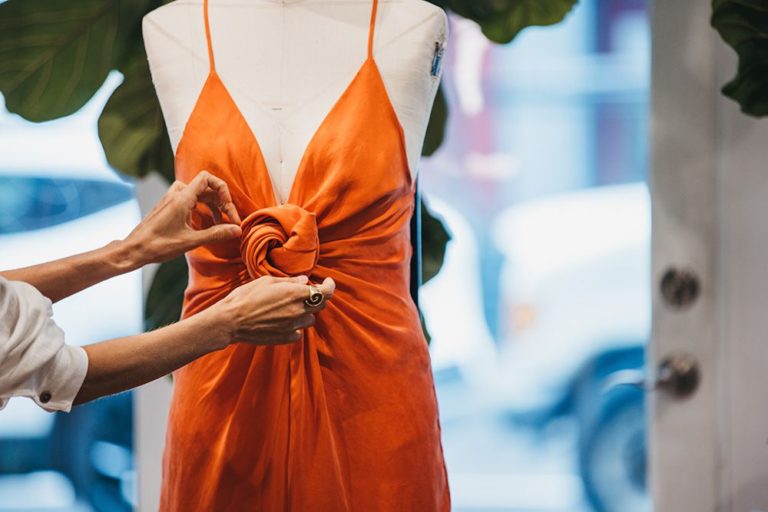Can Circular Fashion Be Beautiful?
Bianca Foley
The fashion industry has long been associated with glamour, creativity, and self-expression. However, in recent years, there has been a growing awareness of the environmental and ethical implications of fast fashion. As a response to this, the concept of circular fashion has gained momentum, promoting sustainability and ethical practices in the industry. But can circular fashion be beautiful? In this article, we’ll explore the historical perceptions of circular and ethical fashion, and highlight contemporary brands that exemplify the fusion of aesthetics and ethics.
Shying Away From The Past
Traditionally, fashion has been driven by trends and consumer demand for new styles, leading to a “take, make, dispose” linear model. This linear approach has not only contributed to environmental degradation but also raised ethical concerns regarding labour practices in the production of inexpensive garments. In recent years, however, there has been a paradigm shift toward circular fashion, an approach that emphasises recycling, reusing, and reducing waste in the industry.
Circular fashion challenges the notion that sustainability compromises aesthetics. Historically, ethical fashion was often associated with plain, unexciting designs, as the emphasis was primarily on eco-friendly materials and fair labour practices rather than high-end aesthetics. However, this perception is changing as more designers and brands prioritise both beauty and sustainability in their creations.

Where Style Meets Circularity
One brand that exemplifies the marriage of beauty and sustainability is New York designer, Mara Hoffman.. Known for her vibrant prints and bold designs, Hoffman has become a pioneer in the sustainable fashion movement. Her commitment to ethical practices and environmental responsibility is evident in her use of eco-friendly materials, ethical manufacturing processes, and transparent supply chains.
Mara Hoffman’s collections showcase that circular fashion can indeed be beautiful. The designer recently partnered with technology company Circ, to launch a gown designed using lyocell derived from 50 percent recycled textile waste. At the end of its life it can be sent back to Circ to be recycled into completely new garments.
This dress stands for everything that the fast fashion industry isn’t. It represents longevity, conscious production and consumerism and has been dubbed “the most sustainable dress yet” (pictured) by Vogue Business.
In addition to Mara Hoffman, numerous other brands have emerged as champions of circular fashion. Stella McCartney, for instance, has been a pioneer in sustainable luxury fashion, incorporating cruelty-free materials and ethical production methods into her designs. There are a growing number of contemporary and independent brands combining style and sustainability, using deadstock fabrics and environmentally friendly practices to create fashion-forward pieces, growing in popularity with consumers.

Supporting A Circular Future
The shift towards circular fashion is not merely a trend; it is supported by compelling data. According to a report by the Ellen MacArthur Foundation, transitioning to a circular fashion economy could result in a reduction of carbon emissions by 52% and water usage by 58%. Additionally, a study by McKinsey & Company found that implementing circular practices, such as recycling and extending the life of garments, could add $500 billion to the fashion industry’s value.
The question of whether circular fashion can be beautiful has a resounding yes. The evolution of the fashion industry toward sustainability and ethical practices demonstrates that beauty and responsibility can coexist. Contemporary brands like Mara Hoffman and Stella McCartney are setting a new standard for fashion that embraces both aesthetics and ethics. As consumers become more conscious of the impact of their choices, the demand for beautiful, circular fashion is likely to grow, encouraging further innovation in the industry and reshaping our perception of what truly constitutes “fashionable”.
Share This Story
Related Posts

Sustainable Graduation Gifts They’ll Love
When it comes to finding the perfect gift for these eco-minded grads, you don’t look too far; here’s a guide to gifts that will not only celebrate their hard-earned achievements but also resonate with their passion for sustainability.

New PEFC Survey Reveals Consumer Unawareness of Forest-Derived Fibres in Fashion, Highlighting Need for Sustainable Practices
Discover the latest PEFC survey revealing that nearly half of consumers are unaware that their clothing contains forest-derived fibres.

The White Company Is Now B Corp Certified! Here Are My Top Homeware Picks
The White Company have now been recognised for their efforts in limiting their social and environmental impact and have been given the ultimate sustainability stamp of approval – a B Corp Certification.

7 Highlights from Global Fashion Summit
This year’s Global Fashion Summit in Copenhagen emphasises the need for a just transition and the role of influencers.
